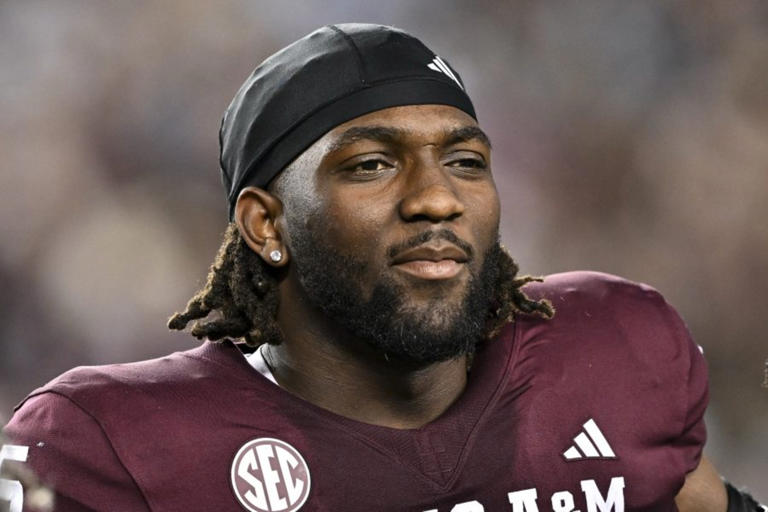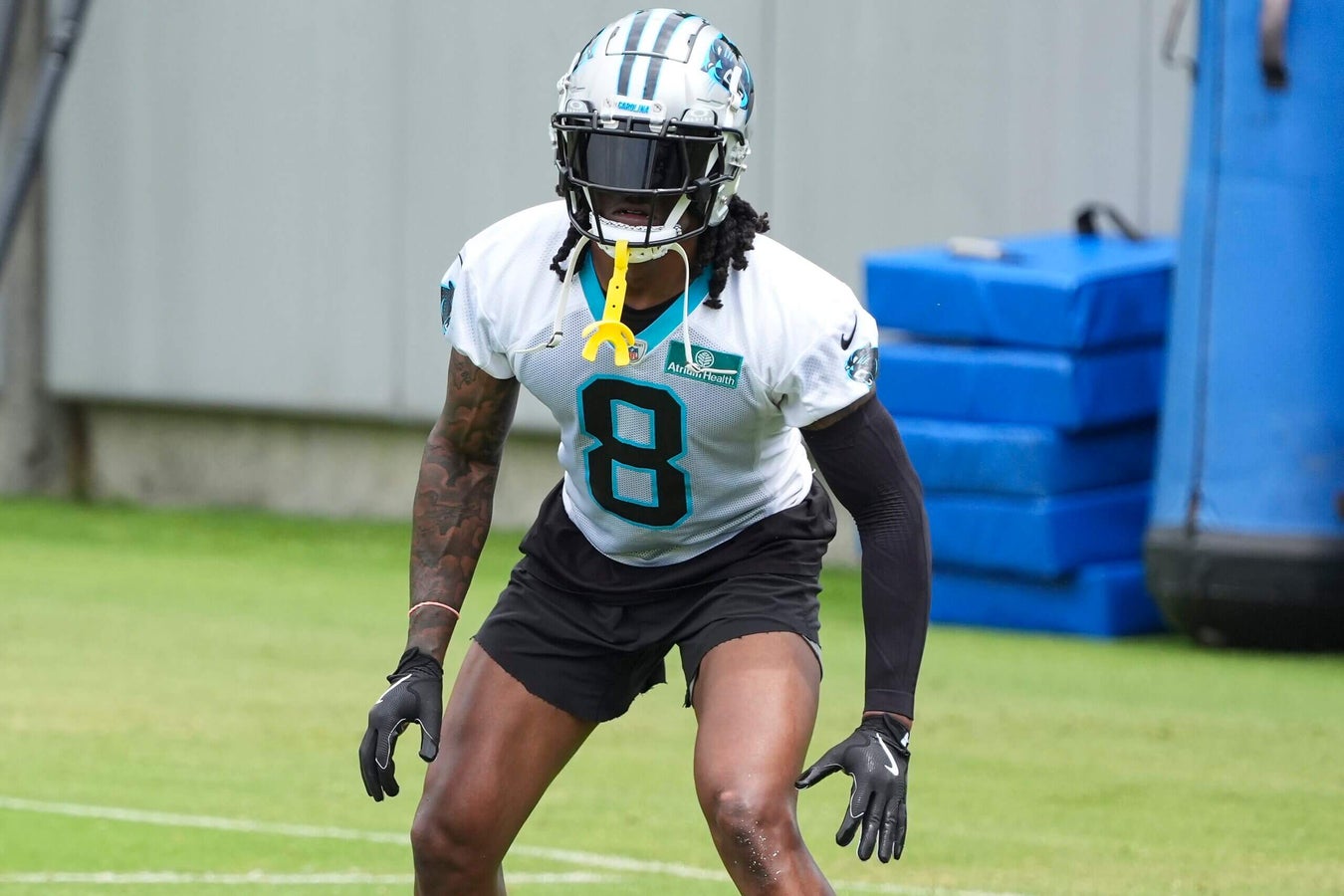From the Gridiron to the Heart: Kenneth Horsey’s Life-Saving Mission Every Athlete Needs to Hear
From the roar of the stadium to the silence of a hospital room, life has a way of throwing the hardest hits when you least expect them. For Kenneth Horsey, a former offensive lineman for the University of Kentucky, the game that once defined him became the backdrop for a battle that redefined what truly matters. Today, his name doesn’t just resonate with fans for his strength on the field—it carries weight in a conversation that could save lives: heart health.
Horsey’s story is not your typical sports headline filled with highlight reels and trophies. It begins during what should have been a golden chapter in his life, when his dream of playing college football collided with an unexpected diagnosis. In his senior year of high school, before the chants and lights of SEC football, Horsey was sidelined by something he never saw coming: a congenital heart condition that required open-heart surgery. The news hit harder than any defensive tackle ever could. At 18 years old, standing on the cusp of his future, he was forced to face the unthinkable—the possibility that his football career, and even his life, might be over before they truly began.
Open-heart surgery is not a phrase anyone expects to hear as a teenager, especially someone in peak physical shape. Athletes often carry an unspoken belief in their own invincibility. After all, their bodies are temples of strength, finely tuned for the demands of competition. But the heart doesn’t care about the scoreboard, and for Horsey, reality arrived like a blitz he couldn’t dodge. The surgery was daunting, the recovery grueling, and the emotional toll overwhelming. Dreams that once felt certain now hung in limbo, replaced by questions about survival and second chances.
Horsey did more than survive—he fought his way back. His resilience became its own kind of victory, one that would later fuel his mission beyond the field. After months of rehab and relentless determination, he returned to football, earning his spot on Kentucky’s offensive line. Each snap of the ball became more than a play; it was a testament to his refusal to let adversity write his story. Fans saw strength on the field, but the real triumph was in the unseen battles behind closed doors—the moments of doubt, the endless doctor visits, and the unwavering belief that his journey had a purpose bigger than football.
That purpose is clear now. Today, Horsey uses his platform to advocate for heart health, a topic often overlooked in the world of sports where toughness is celebrated and vulnerability is hidden. He speaks from experience, understanding that young athletes, parents, and even coaches rarely think about heart screenings until it’s too late. For him, education and awareness are as vital as any playbook. His message is simple but urgent: heart health can’t be an afterthought, because one hidden condition can change everything in an instant.
Horsey’s advocacy is deeply personal, but its impact stretches far beyond his own story. According to the American Heart Association, sudden cardiac arrest remains one of the leading causes of death among young athletes. Many of these tragedies could be prevented with early detection and proper screening. Yet, the stigma around discussing health issues—especially in hyper-competitive environments—persists. Athletes are often conditioned to push through pain, to “tough it out,” to view vulnerability as weakness. Horsey is working to rewrite that narrative, proving that strength isn’t just about lifting weights or blocking defenders—it’s about speaking up, getting checked, and taking preventive measures seriously.
When Horsey talks about his experience, it’s not with bitterness or regret, but with a sense of responsibility. He knows he was given a second chance, and he refuses to waste it. He’s partnered with organizations focused on cardiac awareness, visited schools, and shared his journey openly in hopes of sparking conversations that could save lives. He stresses the importance of routine checkups, knowing the warning signs, and creating a culture where athletes feel empowered to prioritize their health without fear of judgment. His advocacy is not limited to football; it resonates with anyone who believes they’re too young, too fit, or too strong to worry about heart problems.
The beauty of Horsey’s mission lies in its authenticity. He doesn’t speak as a distant expert quoting statistics; he speaks as someone who’s lived the nightmare and clawed his way back to life. That authenticity strikes a chord, especially in an era where mental and physical health conversations are finally breaking through the walls of stigma. He reminds us that health is the ultimate game, and the stakes couldn’t be higher. You can win championships, break records, and earn accolades, but none of it matters if you lose the battle inside your own body.
Horsey’s story also serves as a wake-up call for the sports community at large. From youth leagues to professional teams, there is a pressing need for better health protocols, more comprehensive screenings, and education that goes beyond performance metrics. Coaches and athletic programs often focus on speed, strength, and agility, but what about the unseen risks lurking beneath the surface? Horsey is determined to make sure that heart health becomes part of that conversation. Because the truth is, talent and dedication mean little if a preventable tragedy cuts a career—or a life—short.
In reflecting on his journey, Horsey often credits his support system—family, friends, teammates, and medical professionals—for helping him navigate the darkest days. But make no mistake: his story is one of personal grit as much as communal strength. It’s about refusing to surrender to circumstances, about redefining what it means to be a warrior. It’s about using a painful experience as a platform for change, turning what could have been a devastating setback into a mission that touches lives far beyond the football field.
For fans who followed his career, Kenneth Horsey will always be remembered as a formidable offensive lineman, a key player in Kentucky’s trenches. But his greatest legacy may have nothing to do with stats or championships. It may be measured instead in lives saved, conversations started, and awareness raised. It’s a legacy rooted in compassion, resilience, and the courage to speak up when silence is the easier choice.
So, the next time you watch a game and marvel at the power and speed on display, remember that even the strongest bodies depend on the quiet, tireless work of the heart. Remember that heroes are not only the ones who make the big plays but also the ones who step forward to protect others from unseen dangers. Kenneth Horsey is one of those heroes. His message is clear: take care of your heart, because in the game of life, it’s the most valuable player you’ll ever have.


